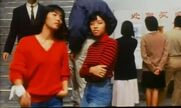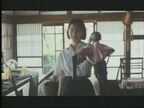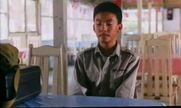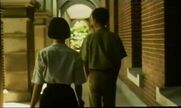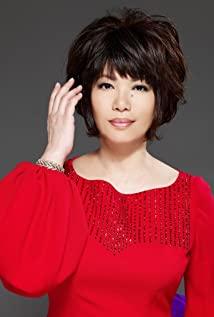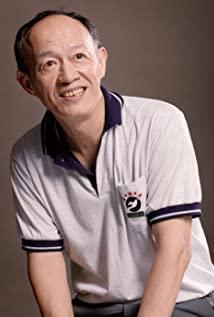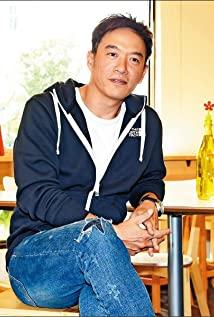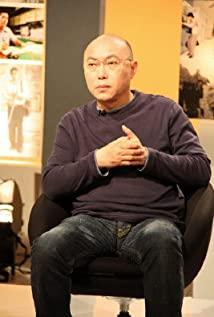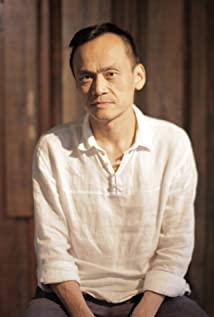I remember when Hou Hsiao-hsien won the award for "Sorrowful City", what he repeatedly wanted to express was "a kind of sadness that the Chinese cannot explain." , He deeply knew what he was thinking, but he couldn't say it in words - "there's no way to explain it". And "Guling Street" gives the answer: this kind of sadness is wandering, the isolation caused by wandering, the fear generated in isolation, the violence that sprouts in fear, the search for power in violence, and the loss in power , produced an hallucination, thinking that the hallucination can sweep away this fear, but in the end it turned out that it was just an hallucination, and after the hallucination collapsed, it was numbness and cruelty.
This isolation---illusion---numbness and cruel changes are all spread out by the two points of Xiaosi and Xiaoming. The more they are unfolded, the more complex they are. The three religions and nine streams, the surging worship are turbulent, blooming like fireworks. This article also extends to the fourth dimension from these two points, starting from the behavior of Xiaosi and Xiaoming:
At the end of the film, Xiao Si killed Xiao Ming. He tried his best to stab Xiao Ming several times, crying and saying, "Why don't you change, you are useless, shameless." That's what he shouted when he tried his best to beat his brother who had suffered for him. The reason why the father beat his brother so frantically that several people could not persuade him was because of his anger at his own incompetence and the fear of venting for several days. He has been detained for many days, asking him about his relationship with his mentor, but the person who always said he wanted to help him and always seemed to have a way, actually reported him long ago. He once sat in his son's office and listened to the headmaster pointing at Sang and scolding Huai with tea: "What the hell". The reason why the principal said this is because his father was in the Education Bureau, and he was in charge of him, but his official position was very small and pitiful. His father is such a low-ranking character, he can't be on the top, but he is higher than these little people. There is a minimum detached house and a higher salary. He didn't hear the headmaster's voice at all, and he repeatedly reasoned with the headmaster-how can the person who copied the test paper and the person copied can be punished the same, it's too unfair. How can the Chinese make any sense? Only standpoint. Afterwards, his father made some righteous remarks, "At this time, it is even more important to distinguish right from wrong and set an example for children." Xiao Si inherited his father's honesty. When he stabbed the knife into his soft body, he thought he was Yes, this anger also stems from the fact that right and wrong are always ignored, and he lost everything.
When Xiao Si killed Xiao Ming, he used the knife of his good buddy, the commander. This good buddy doesn't have any friends, and the hooligans know his father's strength and dare not associate with him. No one else caught his eye. Xiao Si was his only friend, and he later said so in tears, he was a person who longed to enter the circle of hooligans and become a hooligan. He did not understand the price of a hooligan but was eager to imitate the behavior of a hooligan. Xiao Si is considered a "good boy" in the hooligan circle, which is completely in line with his fantasy. He borrowed a Japanese sword for Xiao Si, showing off that the legs of those wooden chairs were not enough. He doesn't like misses, he is timid but eager to take risks, he just expects to be like the little four - an isolated person. He hoped that Xiao Si would like him, but he angered Xiao Si because Xue Xiao Si and Xiao Ming were together. He didn't understand why, until the end. Instead, Xiao Si used the knife he borrowed to block him at the school gate every day, making him afraid to go home with Xiao Ming.
The knife that the young master lent to Xiao Si was originally intended to kill Shandong. Xiao Si did not hold the knife, but the knife that Xiao K gave to his Japanese woman to commit suicide. He hates Shandong because Shandong killed the honey he likes. Honey was supposed to be his rival in love, but his chivalrous spirit moved Xiao Si. He told Xiao Si that he just believed that some things would remain the same, but he actually knew in his heart that everything had changed, that a woman fell in love with someone else, and the younger brothers took advantage of their own interests, and took refuge in someone he didn't like before. He let Xiao Si see right and wrong, loyalty, chivalry, persistence and what his father told him, but Shandong killed him by despicable means.
Before Xiao Ming was killed, he asked Xiao Si why you did this. She is a girl who longs for freedom. She thought Xiao Si could give her freedom and respect her. However, because of the above, Xiao Si hopes to let this girl understand that right and wrong are important, and she is his bottom line, and he cannot face her fault. Xiao Ming wanted to tell him that she was only for temporary survival, and the world made her only see what happened in front of her eyes. The reason why Xiao Si is like this is because she really has nothing to do. Her mother came to Taiwan from the mainland, but the man died. Drifting more and more drifting, they always live in the face of "fuck". When the young master slapped her for playing with a gun, she still became the young master's miss; she told honey's sister that she had been waiting for honey, and she gently pulled up her skirt when the doctor rubbed the medicine on herself; She makes everyone think they have her.
View more about A Brighter Summer Day reviews



